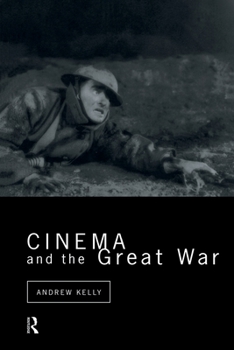Cinema and the Great War
Select Format
Select Condition 
Book Overview
Cinema and the Great War concentrates on one part of the art of the war: the cinema. Used as tool for propaganda during the war itself, by the mid 1920s cinema had begun to reflect the rejection of conflict prevalent in all the arts. Andrew Kelly explores the development of anti-war cinema in, Britain, America, Germany and France from the ground-breaking Lay Down your Arms, made by Bertha Von Suttner in 1914 and Lewis Milestone's bitter All Quiet on the Western Front through to Stanley Kubrick's magnificent Paths of Glory.
Format:Paperback
Language:English
ISBN:0415514827
ISBN13:9780415514828
Release Date:December 2012
Publisher:Routledge
Length:232 Pages
Weight:0.73 lbs.
Dimensions:0.5" x 6.1" x 9.2"
Customer Reviews
0 rating





